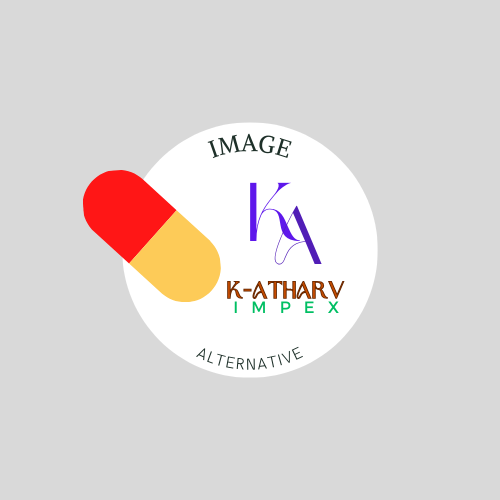- Your cart is empty
- Continue Shopping

Tepmetko 225mg Tablet
Uses of Tepmetko 225mg Tablet
- Treatment of non-small cell lung cancer (NSCLC)
Introduction to Tepmetko 225mg Tablet
Tepmetko 225mg Tablet is a medication that contains Tepotinib as an active agent. The primary benefit of this medication is its ability to slow down or stop the growth and prevent the spread of cancer cells in the body, particularly in patients with non-small cell lung cancer (NSCLC) that has a mutation in the MET gene (surface of certain cancer cells). Another potential benefit of Tepmetko 225mg Tablet is that it may have fewer side effects when compared to traditional chemotherapy. However, it can still cause side effects like nausea, vomiting, and fatigue. Patients who are allergic to Tepmetko 225mg Tablet or its components should not use this medication.
Patients with previous heart, kidney, lung, and liver disease should talk to a doctor before taking this medication. This medicine has not been studied in elderly patients, so its use in this population requires careful monitoring. Patients receiving it are monitored for signs of bleeding, such as hemoptysis (coughing up blood), melena (dark, tarry stools), or hemorrhagic shock. It is recommended to avoid consuming large amounts of grapefruit or grapefruit juice, as it can increase the risk of adverse reactions or interactions with some medications.
Therapeutic Effects of Tepmetko 225mg Tablet
In patients with NSCLC and the specific MET mutation, Tepmetko 225mg Tablet has been shown to have an anti-tumor effect, leading to tumor shrinkage and improved disease control. Studies have demonstrated that this medicine can significantly improve progression-free survival (PFS) in patients with NSCLC compared to standard chemotherapy.
Interaction of Tepmetko 225mg Tablet with other drugs
Inform your healthcare provider about all your medicines, including prescription, over-the-counter, nutritional or vitamin supplements, and herbal products. Certain medications may interact with Tepmetko 225mg Tablet, reducing effectiveness by causing undesirable side effects.
More Information about Tepmetko 225mg Tablet
- Store in a refrigerator between 20-25°C (68-77°F).
- Keep away from moisture, heat, and light.
- It should not be frozen.
- Keep it in its original packaging until it is ready to be used.
- Keep out of the reach of children and pets.
How to consume Tepmetko 225mg Tablet
Take Tepmetko 225mg Tablet exactly as your doctor prescribes. The recommended dose and dosing schedule may vary depending on your medical condition, age, weight, and other factors. It should be taken with food. Swallow the tablet as a whole with a glass of water. Patients should not chew, crush, or break the tablet, as this may affect the effectiveness of the medication. Avoid doubling the dose to compensate for the missed dose.
Safety Advices for Tepmetko 225mg Tablet
Pregnancy
Pregnant women should consult their healthcare provider about their pregnancy status before receiving Tepmetko 225mg Tablet.
Breast Feeding
It is unknown if Tepmetko 225mg Tablet is excreted in human breast milk, so breastfeeding women should consult a healthcare provider before taking this medication.
Lungs
Tepmetko 225mg Tablet can cause lung problems, such as interstitial lung disease (ILD) or pneumonitis. Patients with a history of lung disease or pre-existing lung damage may be at increased risk for these side effects.
Liver
Tepmetko 225mg Tablet can cause liver toxicity, so it should be avoided in patients who have severe liver disease.
Alcohol
Individuals should avoid consuming alcohol before or immediately after receiving Tepmetko 225mg Tablet, as alcohol can impair the immune system and potentially reduce the effectiveness of the treatment.
Driving
Patients should always monitor their response to the Tepmetko 225mg Tablet medication and be cautious when driving or operating machinery if they experience any side effects that may impair their ability to do so safely.
Side Effects of Tepmetko 225mg Tablet
Tepmetko 225mg Tablet cause some side effects like all medications, although not everyone will experience them.
Serious:
- Hepatotoxicity
- Interstitial lung disease (ILD)
- Severe skin reactions
- Perforation or fistula formation in the gastrointestinal tract
- Bleeding, including severe or fatal bleeding
Common:
- Edema (swelling)
- Nausea
- Diarrhea
- Fatigue
- Anorexia (loss of appetite)
- Vomiting
- Increased blood creatinine levels
- Increased alanine aminotransferase (ALT) and aspartate aminotransferase (AST) levels
- Rash or itching
- Muscle pain or weakness
